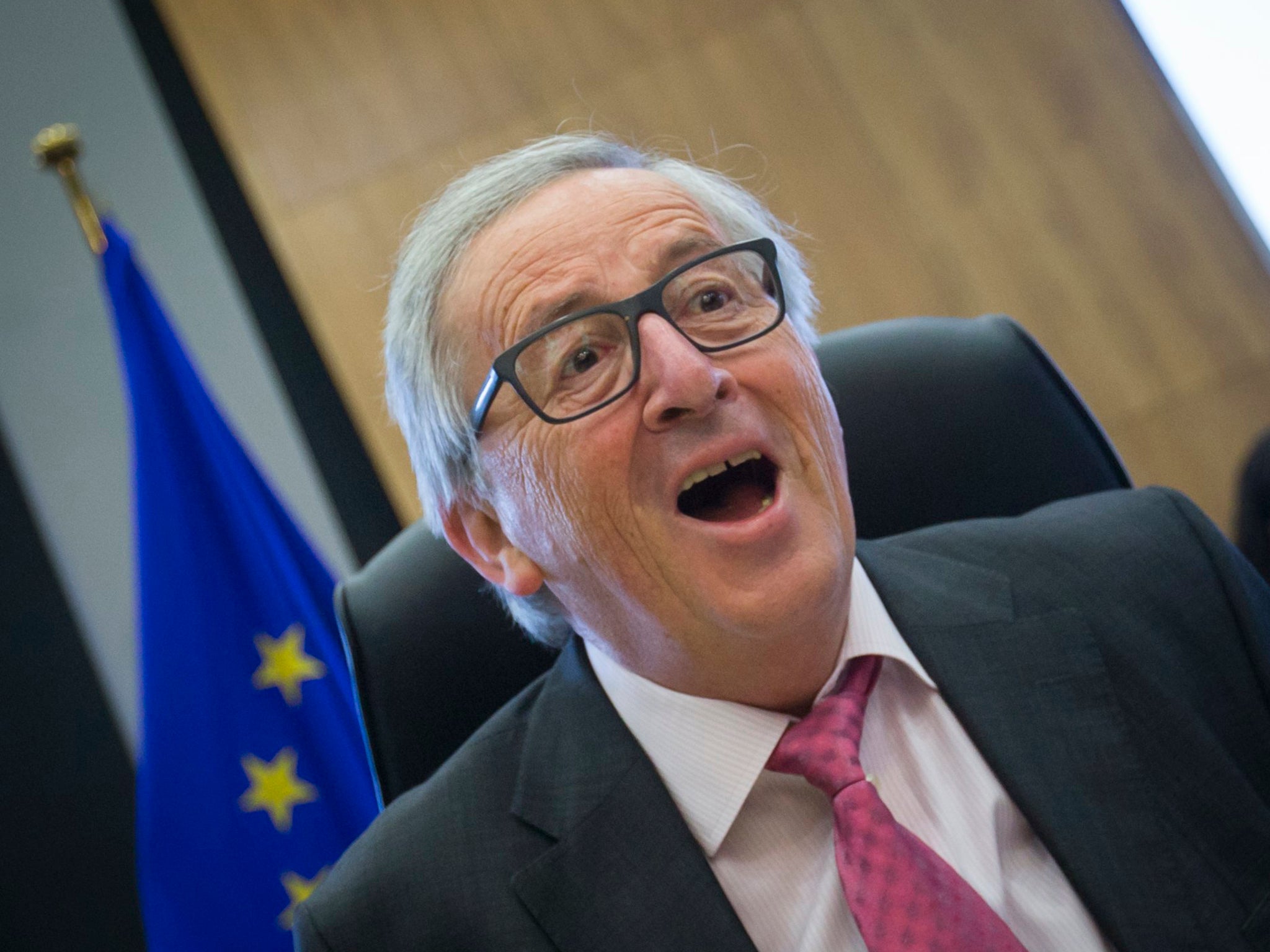Even if May forms a new government, the big winner in this election is the EU
The 48 per cent of the British voters who said yes to Europe a year ago have risen up and told the Conservative Party that they cannot be ignored


After Trump in America and Macron in France now it is the turn of British voters to astonish themselves and the world with an election result that was unthinkable a few weeks ago.
Last year David Cameron believed that his cynical plebiscite on Europe could not be lost. This year Theresa May believed her opportunistic early election would result in Labour being crushed. Never have two British prime ministers shown such lack of judgement in just 12 months.
Theresa May has suffered a humiliating defeat after less than a year in office. The 48 per cent of the British voters who said Yes to Europe a year ago have risen up and told the Conservative Party that they cannot be ignored.

Far from leaving Europe, Britain seems more continental than ever as the nation has no stable government, a parliament of many parties and could face new elections.
May says she will stay as Prime Minister but she is massively weakened as she loses her majority in the House of Commons. Her decision to embrace the anti-European ideology of Ukip and put into her cabinet populist anti-EU demagogues like the Foreign Secretary, Boris Johnson, has backfired.
Most polls show that the British people do not support leaving the EU single market and customs union and want to keep the right to live, work and retire in other European countries where two million Brits have a home. May however has opted for a hard-line on Brexit, but she no longer has a majority in the House of Commons for this policy. Britain is caught between the decision of voters in last year’s plebiscite to say No to Europe and the decision of the election to say No to a hard Brexit.
Jeremy Corbyn, the leftist Labour leader, has saved his honour and his focus on domestic issues like austerity, cuts to public services like health care and the police found an echo.
May and the pro-Brexit press in Britain tried to portray Corbyn as a friend of terrorists, a left-wing extremist and even someone who had met Yanis Varoufakis. But voters saw an elderly man with a white beard talking about injustice and inequality at home and abroad and young voters in particular liked the message and gave Corbyn their support.
But the Labour leader only added 31 Labour MPs and Labour is still far short of a majority in the Commons. In London, where many Labour candidates defied Corbyn’s support for leaving the single market and imposing immigration controls on fellow Europeans and campaigned to stay in Europe, Labour did very well.
The losers of the election were English and Scottish nationalisms. The Ukip vote disappeared and pro-European Liberal Democrats won seats from the Conservatives in London even if the party’s former leader, Nick Clegg, was defeated by the Conservatives in Sheffield.
In Scotland, Scottish nationalism suffered major blows as Scottish Nationalist Party seats fell to Conservatives, Labour and the Liberal Democrats. The party’s leader in the House of Commons and the former Scottish Nationalist leader, Alex Salmond, were both defeated as Scottish voters rejected calls for independence and separation from the rest of the United Kingdom.
All the assumptions about British politics have turned out to be false. May was an accidental Prime Minister who arrived in Downing Street after the Brexit plebiscite because all the main anti-European Tory MPs who expected to take over after David Cameron resigned stabbed each other in the back, front, top and bottom and she was the only senior Tory minister left standing as her colleagues destroyed each other.
She had no clear programme for government. She made a powerful pro-European speech in April 2016 but then adopted Ukip policy on Europe. She refused to explain to the public what the costs and consequence of a hard Brexit would be. In exchange, the public refused to endorse her when she asked for a personal mandate in the general election many saw as opportunistic and cynical.
The assumption that Corbyn’s leftism would destroy Labour has been shown to be false. The assumption that the mass circulation British press with its daily fake news propaganda attacks on the European Union spoke for Britain is also false.
Since 2014 Britain has had two major referendums – on Scottish independence and Brexit – and two general elections. But nothing has been finally decided. Anti-European Conservatives were hoping to be joined by dozens of pro-Brexit candidate but the reverse has happened. A clear majority of British MPs want Britain to stay as fully in Europe as possible. The cause of Europe lost in Britain in the referendum in June 2016 but won in the election of June 2017.
When May met President Trump as the first European leader to go and pay homage to the new US president she was seen holding his hand. Now Trump’s best friend in Europe has been mortally wounded. As in the Netherlands, Austria and France, Europe has emerged as the winner in the British election.
Denis MacShane is the UK’s former Minister of Europe and has written three books on Brexit
Join our commenting forum
Join thought-provoking conversations, follow other Independent readers and see their replies
Comments
Bookmark popover
Removed from bookmarks